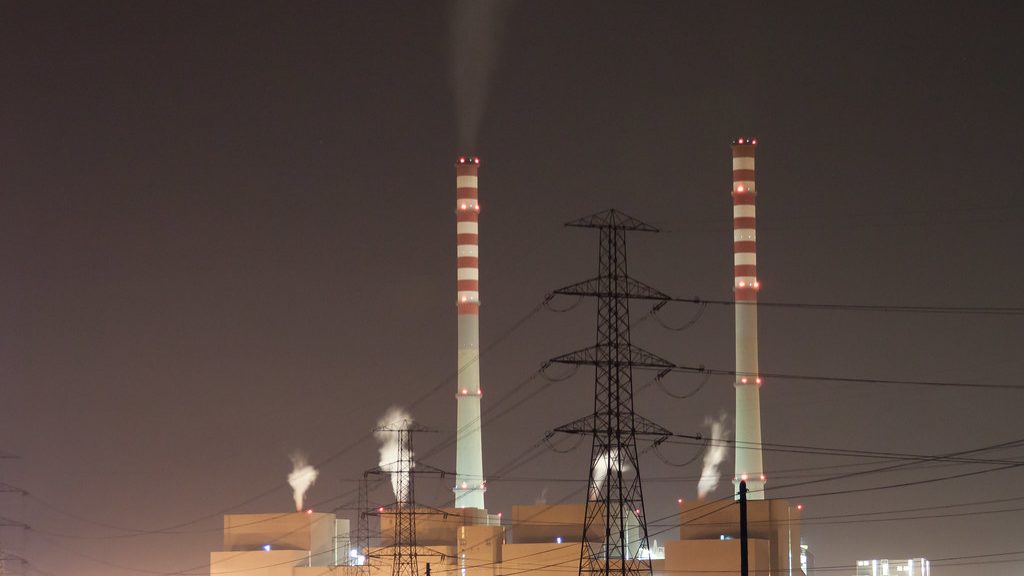Sines plant closes ahead of schedule due to market developments
With an installed capacity of 1,256 MW, the Sines coal-fired power plant supplied a third of the electricity consumed in Portugal in the early 1990s and was losing importance in recent years.
EDP on Friday closes the Sines thermoelectric power station in Setúbal, an early closure due to the deterioration of market conditions, starting the decommissioning of equipment and later the dismantling of the 35-year-old plant.
With an installed capacity of 1,256 MW, the Sines coal-fired power plant supplied a third of the electricity consumed in Portugal in the early 1990s and was losing importance with the growth of renewable energies and provided only 4% of electricity consumption in 2020, according to REN.
The power plant has 107 direct employees, with whom many different options are being negotiated, from retirement or pre-retirement or access to mobility opportunities within the group, according to EDP’s official source.
“EDP started contacts in September last year, as planned after the announcement of the plant’s closure, to jointly evaluate the different options. This process […] has been carried out with full cooperation and within the planned timeframe,” he said, adding that in all cases, the main priority has been to ensure that the company’s commitments to its 107 employees are fully met and in the best interests of both parties.
Regarding the 400 or so indirect employees, the company said these were service companies they have contracts with.
The last day of electricity production at the Sines power plant in Setúbal was on Thursday, and the decommissioning of the equipment is now beginning, a process that should take about five years, with the future of the facility still open.
With the closure of Sines, Portugal has only one operational coal-fired power plant, Pego, which is expected to close by November.
On Thursday, the environmentalist association Zero said the closure of the Sines thermoelectric plant would bring the most significant reduction in emissions of greenhouse gases ever seen in Portugal.
The end of the plant’s operation also means the end of around a tenth of Portugal’s emissions of nitrogen oxides, sulphur dioxide, particulates and heavy metals, Zero said.
Concerning the future of the infrastructure in Sines, EDP said it is still studying the possibility of developing projects that could take advantage of part of the existing infrastructure in that location.
A project to produce green hydrogen, the source said, is still in a study phase with several partners. The H2Sines project, as it is public, was born in this context as a partnership that includes several companies – including EDP, REN, Galp, Martifer, Vestas and Engie – to assess the feasibility of creating a value chain of green hydrogen in Portugal for national consumption and export to northern Europe.
In 2018, the then chief executive of EDP, António Mexia, said they should bring forward the closure of the Sines power plant, to well before 2025, due to the increase in the tax burden applied to coal power plants, referring to the end of the exemption from the tax on oil products (ISP) and the introduction of a carbon tax through the state budget of that year.
At the time, Mexia warned of the impact that closure of the Sines power plant would have on the region’s economy, particularly in terms of employment, on the wholesale price of electricity, and also said it raised questions about the security of supply in Portugal.
In his speech in October 2019, Prime Minister António Costa said that his new government was prepared to close the Sines power plant in September 2023, bringing forward the planned timetable for closure, which was between 2025 and 2030.
In 2020, EDP decided to bring forward the closure of its coal-fired power plants in the Iberian Peninsula (in Sines and Asturias, Spain), taking into account the continued deterioration of market conditions for these plants during the first half of the year.
At the end of last year, the company received the necessary authorisations to close down the Sines coal-fired power station as of Friday.


